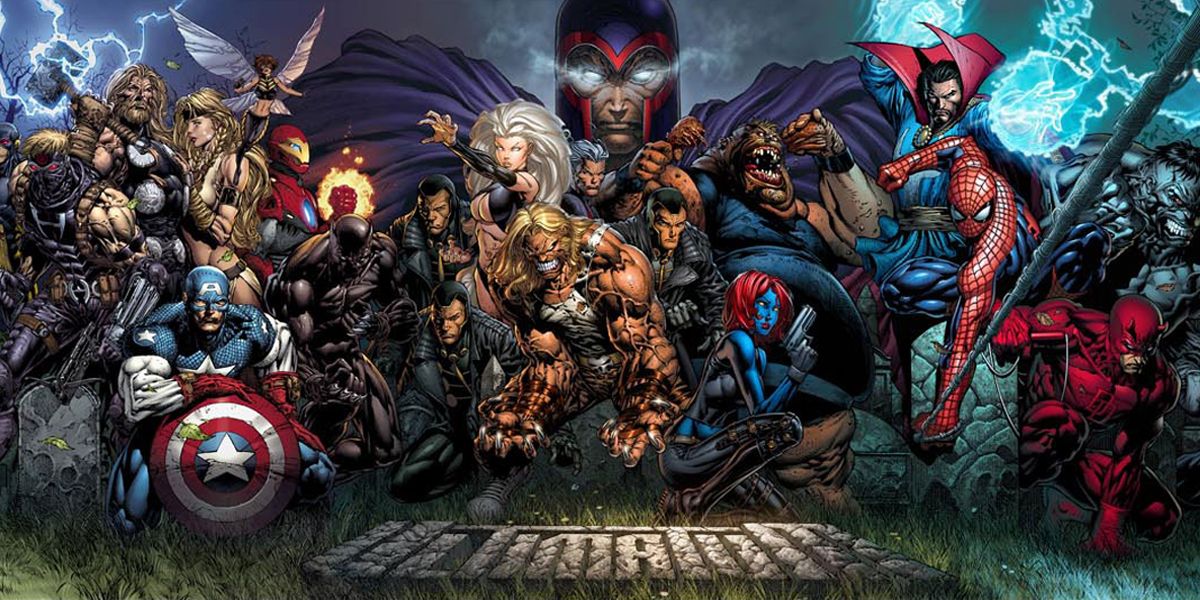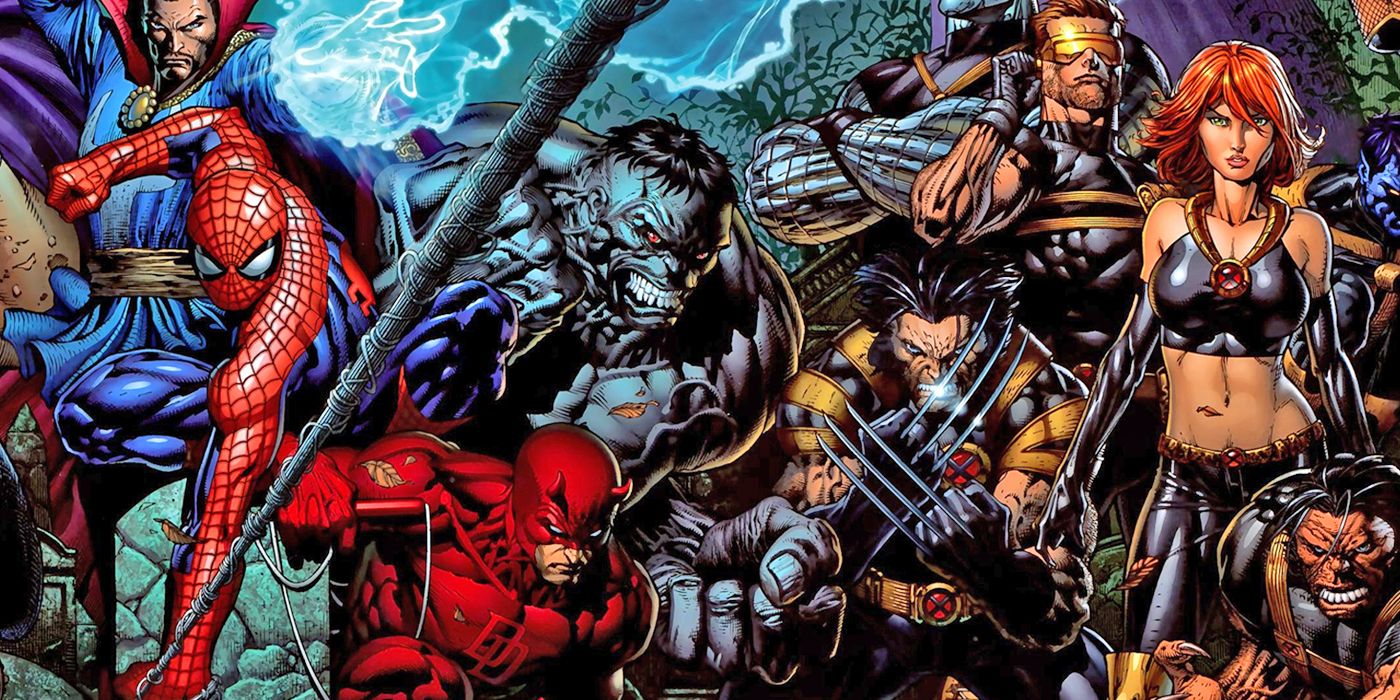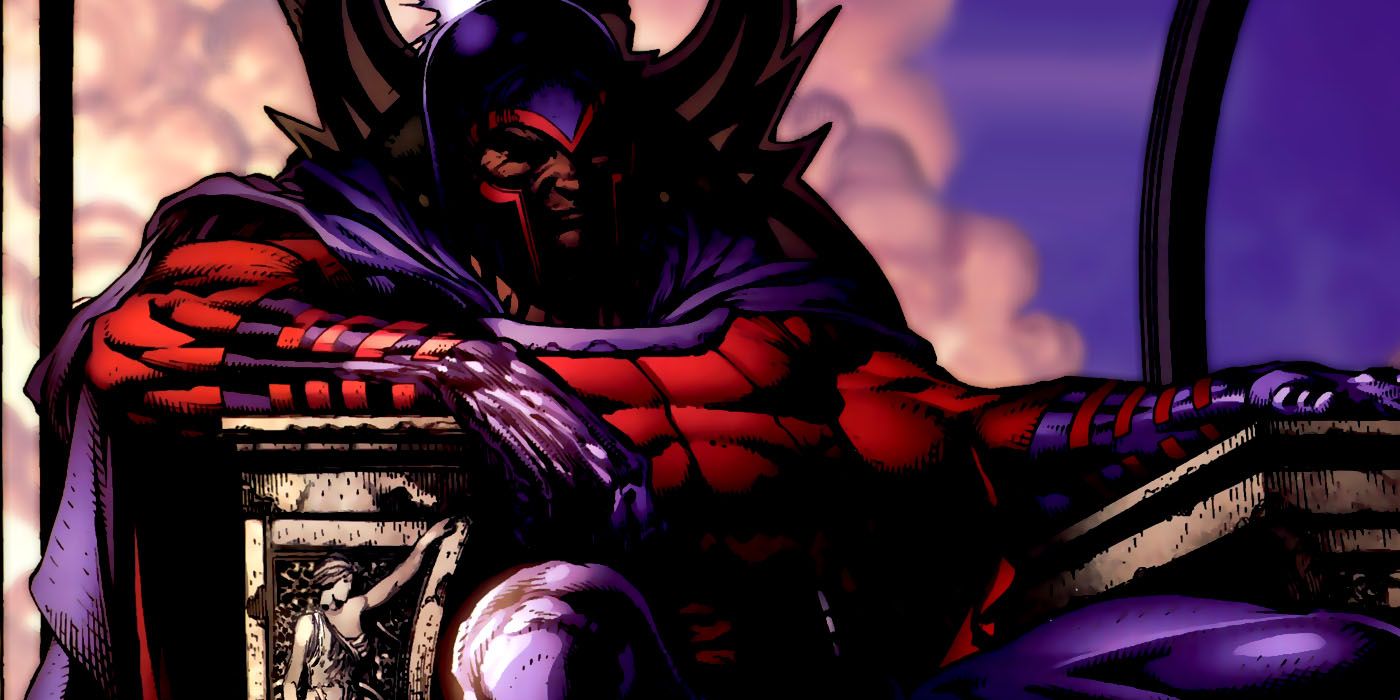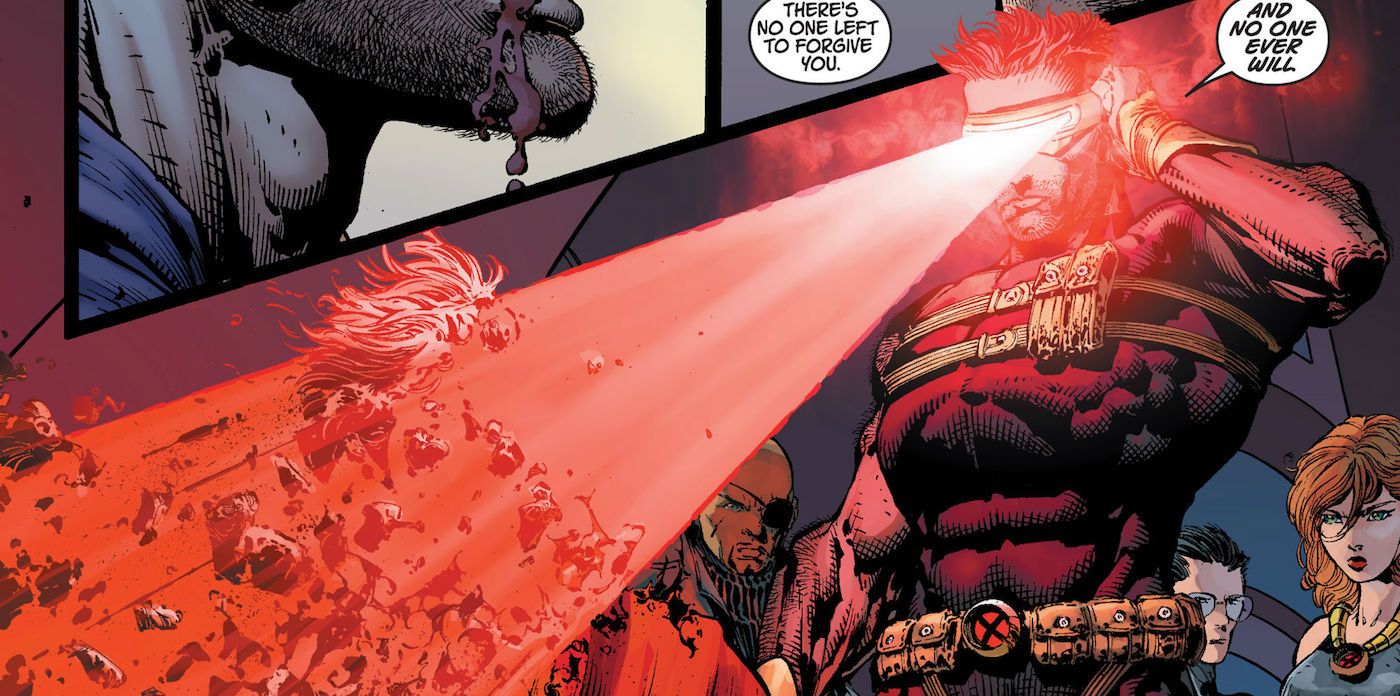The ultimate Marvel event Ultimatum might be the most unpopular story event in recent memory. Sure, every major story has fans and haters, but Ultimatum attracts a lot of hate -- and deservedly so. The story was intended to revamp the Ultimate Universe and inject new life into the continuously convoluted alternate reality, only to ruin many of the good things it had going for it.
A recent report indicated that Marvel Studios has interest in loosely adapting Ultimatum, much in the same way it adapted Civil War and Infinity Gauntlet. This could work for Marvel Studios and its Marvel Cinematic Universe, so long as the directors and writers hired to helm the projects leading to Ultimatum understand what didn't work about the story and what could work about a revamped idea. Ultimatum is either going to revitalize the MCU... or utterly break it.
What Does Ultimatum Do Right?
Ultimatum is an earth-based event that focuses on Magneto as the central antagonist, with the Fantastic Four as major viewpoint characters. Thanks to the Disney merger with Fox, Marvel Studios now has access to the X-Men and Fantastic Four. Since these characters play crucial roles in Ultimatum, this might be a good story to build to that features both teams as major players.
Most important of all is Magneto. In the X-Men films from Fox, Magneto has on multiple occasions tried to eradicate humanity and still comes across as sympathetic. Magneto in Ultimatum again tries to restart society to create a new one in its wake. He manipulates the planet's magnetic poles, aided by Mjolnir. This could be a way to integrate the newly established characters with prior MCU lore in a way that feels organic. While Magneto in Ultimatum comes across as a complete monster, MCU Magneto might come across as more tragic.
On top of that, Doctor Doom and Latveria are presented in a heroic light. While Doom is a villain, he works alongside the heroes in this arc. In Ultimatum, Magneto decides to destroy the world after Doom kills Magneto's children and Doom attempts to stop him. To have Doom's actions push Magneto into further escalation would lead to an interesting dynamic between villains that hasn't been seen in the MCU.
Furthermore, one major plot point of Ultimatum is Thor confronting Hela and her armies of the dead to salvage Valkyrie's soul. This would be an easy way to bring Thor and Asgard back into the mix, as well as offer a chance to have to bring dead characters back for a brief cameo, even tying into the possible Marvel Zombie teases that might appear in Disney+'s What If...?
The Problems
However, while these elements of Ultimatum seem interesting on the surface, there is a lot that went wrong with the story. Marvel Studios should be wary of treading into dangerous territory, because many fans hate this story for a number of very justified reasons.
One problematic element is that it ties mutants to the super-soldier program. Nic Fury reveals that mutantkind was created thanks to the super-soldier serum being mixed with Wolverine's genetic material. On one hand, it ties Wolverine into the origins of why mutants spread rapidly in the 20th Century. However, tying mutants to the super soldier serum might be reductive. Multiple MCU characters, from Hulk to the Winter Soldier, can already trace their origins to people trying to recreate the super-soldier serum. Additionally, this plot point makes mutant history incredibly short, meaning mutants born before the 20th century like Apocalypse and Mr. Sinister wouldn't make sense in this continuity.
Furthermore, several characters behave in an out-of-character way. Ultimate Magneto is far less sympathetic than 616 Magneto to begin with, but his actions in Ultimatum feel particularly nihilistic. The story is also overly dark and gruesome for the sake of it. The MCU is well-known for being a fun franchise without anything too disturbing, so it seems odd a story this violent may be the new source material.
Too Many Deaths
When Peter Parker died in Avengers: Infinity War, while many people were sad, but few people believed he'd actually stay dead because he was just introduced to the MCU. By contrast, when Tony Stark died in Avengers: Endgame, it felt justified, since it served as the culmination a decade-spanning character arc. Ultimatum's problem is it kills way too many characters for the sake of it. It prematurely ends every potential story to be told with these characters, but also does it in a way that makes their characters feel unimportant and meaningless.
The core of the story -- Magneto creating a superstorm by manipulating the planet's magnetic fields in order to destroy society -- implies that some lives might be lost. However, Ultimatum is widely hated for how many characters met unremarkable, anti-climactic ends. Angel, Nightcrawler, Toad, Dazzler, Daredevil, Franklin Storm and Beast are all drowned by Magneto's wave.
Other characters are blown up in the same explosion, like Cannonball, Polaris and Emma Frost. Doctor Strange dies, Juggernaut dies, Wolverine dies, Thor dies, Cyclops dies -- there are a lot of deaths, the majority of which are abrupt and ultimately pointless. The absolute worst is when the Wasp is eaten alive by the Blob. Hank Pym ends up avenging her death by eating the Blob's death, but the scene is so gratuitous and grizzly that many fans were left deeply disturbed by the event.
Ultimatum is remembered for being a mean-spirited, ugly event that took away more than it earned. By sidelining all the death, Marvel Studios may find some success with it -- but only by avoiding Ultimatum's mean-spirited side.




